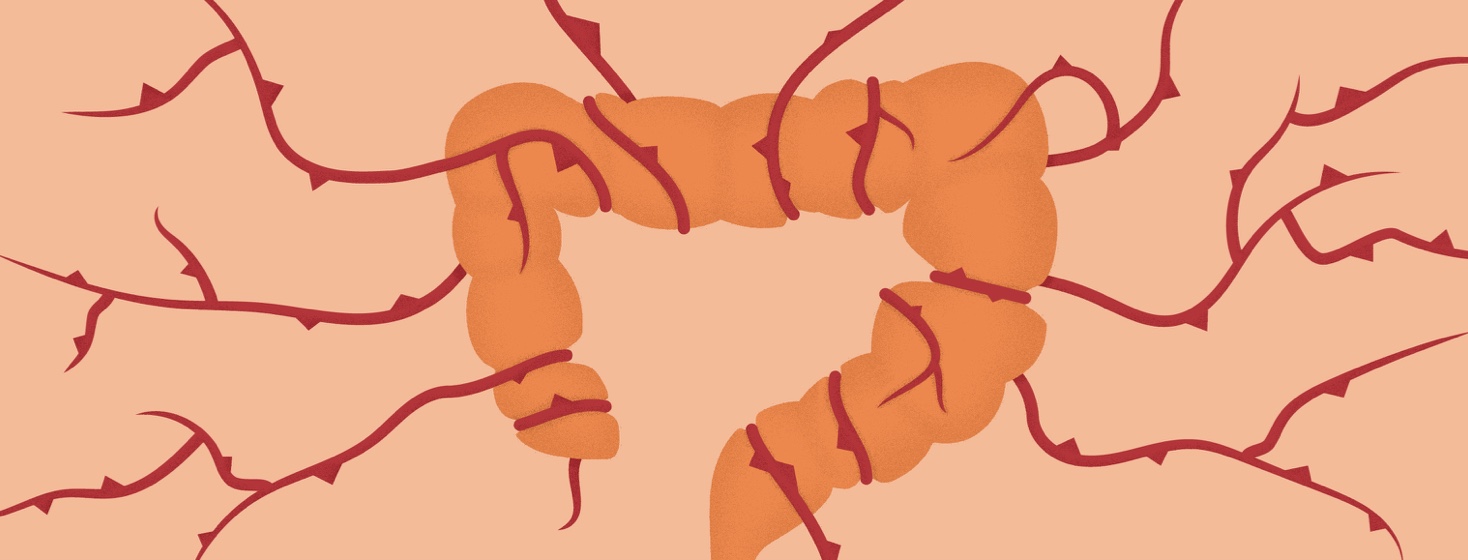Extra-Intestinal Manifestations of Ulcerative Colitis
Diarrhea and stomach pain are the 2 symptoms of ulcerative colitis (UC) that get the most "air time," but are they actually the most debilitating for the patient themselves? And what about when extra-intestinal (meaning those that occur outside of the intestine) issues present when you're clinically in remission?!
Excruciating abdominal pain from UC
As someone with ulcerative colitis, I can wholeheartedly affirm that the abdominal cramps can genuinely be incapacitating. As in, it's impossible to stand sometimes, let alone walk! The pain has been likened to that of labor by those who have experienced childbirth, with some people even saying that their inflammatory bowel disease (IBD) pain is worse. I couldn't personally comment on that.
There are different levels of abdominal pain, and I think that people who experience pain on a daily basis do tend to build up a certain amount of tolerance to the lower level pain, which allows you to function while still feeling really unwell. The amount of pain and the area in which you feel it will depend on the type of inflammatory bowel disease you have, which part of your intestine is affected and what is actually causing the pain; inflammation, ulcers, strictures, etc.
Urgency and frequency of bathroom trips
When urgency and frequency are an issue, they really ARE an issue. You can get a warning just seconds before it's too late, and then before you've even got to wash your hands, receive another 5-second warning – doh!
There is no doubt that the symptoms that can be caused by what's going on in your intestine are awful, life-limiting and soul-destroying, but, what about the rest?
There are so many extra-intestinal manifestations that affect everything from bones and skin to teeth and eyes, plus an additional huge list of problems that can arise from the treatments we need to take to control the disease. For the purpose of this blog, I just want to briefly touch upon some of the most common ones; fatigue, nutritional deficiencies, and joint pain. I have no doubt that they will have a dedicated post at some point in the future.
Fatigue and ulcerative colitis
When fatigue is compared to just being tired, it can be incredibly frustrating for the recipient of the comment. Fatigue is not simply a result of having done too much and needing to rest and recuperate. Fatigue is complete exhaustion of your body and mind, often when you have done nothing to warrant it. No amount of sleep and no amount of positive thinking will help. Fatigue can lead to isolation and depression very quickly because there's no energy to socialize, and often no mental capacity to even reply to messages.
Nutritional deficiencies and malabsorption
When food flies through you so quickly, your intestine doesn't get the chance to absorb the nutrients it needs from the food you eat, and many patients find that during a flare, healthy foods such as fruits and vegetables are off-limits anyway, so the food you're not getting the chance to absorb nutrients from is often not very nutritious anyway.
Scarring from previous flares or surgeries can also prevent proper absorption, as does having part of your intestine removed due to previous disease activity. Iron, B12 and Vitamin D are all common deficiencies, and these also affect energy levels. Iron deficiency anemia alone can cause dizziness, lack of energy, shortness of breath, muscle cramps, and palpitations.
Joint pain and inflammation with UC
It is believed that up to 30 percent of people with inflammatory bowel disease also have joint pain and inflammation, commonly in the elbows, wrists, knees, ankles and lower back.1
While these issues are common during a flare with ulcerative colitis, these can also be experienced when in remission and many people who have had their colon and rectum removed still experience these symptoms, so they by no means consider themselves “cured” of UC because of the loss of the colon.
It's infuriating when your intestines (or lack of) feel fine, but the extra-intestinal manifestations are still present because it feels like you just can't catch a break. Like you should be able to get on with life and take part in things, but fear you might never feel “well” enough.
I frequently wish that ulcerative colitis would just stick to bothering my intestine!


Join the conversation